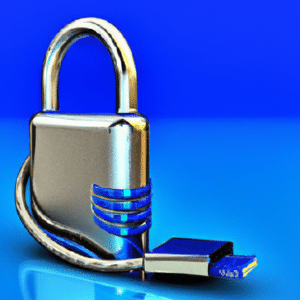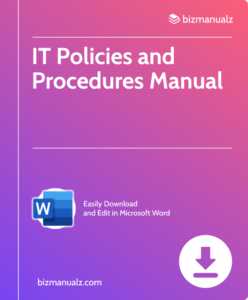What Information Security Standards are used Around the World?

Adhering to Information Security Standards and guidelines not only aids in fulfilling legal obligations but also fosters trust among stakeholders and customers by showcasing a dedication to safeguarding confidential data. International standards like ISO/IEC 27001 are freely embraced by companies looking to improve their overall information security posture. What Information Security Standards are used is Around the World?
Why are Information Security Standards Important?
Information security standards are important for several reasons, as they play a crucial role in safeguarding sensitive information, protecting organizations from cyber threats, and ensuring the reliability and integrity of data. Here are some key reasons why information security standards are important:
Risk Management: Information security standards provide a systematic framework for identifying, assessing, and managing risks to an organization’s information assets. By implementing security controls and best practices, organizations can reduce the likelihood and impact of security incidents.
Confidentiality and Privacy Protection: Standards help establish measures to protect the confidentiality of sensitive information, preventing unauthorized access or disclosure. This is particularly important in industries where the privacy of customer or employee data is a priority.
Compliance Requirements: Many industries and regions have specific regulatory requirements for information security. Compliance with information security standards helps organizations meet legal obligations, avoid penalties, and maintain a positive reputation with regulators, customers, and partners.
Customer Trust and Reputation: Adherence to information security standards demonstrates a commitment to protecting customer data and maintaining trust. A strong security posture can enhance an organization’s reputation, instilling confidence among customers, clients, and stakeholders.
Business Continuity: Information security standards contribute to the development of robust business continuity and disaster recovery plans. This ensures that organizations can respond effectively to security incidents, minimizing downtime and potential financial losses.
Competitive Advantage: Organizations that can demonstrate compliance with recognized information security standards may gain a competitive advantage. Certifications such as ISO/IEC 27001 can serve as a differentiator in the marketplace, showcasing a commitment to security best practices.
Vendor and Partner Relationships: Many businesses require their vendors and partners to adhere to specific information security standards. Conforming to these standards helps organizations build and maintain trust in their relationships with other entities in the supply chain.
Efficient Resource Allocation: Information security standards provide a structured approach to security management, helping organizations allocate resources efficiently. This includes investments in technology, personnel training, and ongoing monitoring and improvement efforts.
Incident Response Preparedness: Standards often include requirements for developing and maintaining incident response plans. Being prepared to respond effectively to security incidents helps minimize the impact of breaches and accelerates the recovery process.
Continuous Improvement: Information security standards emphasize the importance of a continual improvement process. Regular assessments, audits, and reviews help organizations identify areas for enhancement and stay proactive in addressing emerging threats and vulnerabilities.
Global Alignment: International standards provide a common language for organizations globally. This alignment facilitates communication and collaboration across borders, particularly in multinational organizations or industries with a global footprint.
Protection Against Emerging Threats: Information security standards often evolve to address emerging cyber threats and technologies. Following updated standards helps organizations stay resilient against new and evolving security challenges.
Information security standards provide a structured and systematic approach to managing and mitigating information security risks. They serve as a foundation for building a strong security posture, promoting compliance with regulations, and fostering a culture of security within organizations. By adhering to these standards, organizations can better protect their assets, maintain trust, and adapt to the dynamic landscape of cybersecurity.
Common International Standards
- ISO/IEC 27001: ISO/IEC 27001 is an international standard for information security management systems (ISMS). Many organizations around the world, including those in Africa, adopt this standard to establish a framework for managing information security risks.
- ISO/IEC 27002: ISO/IEC 27002 provides a set of guidelines and best practices for implementing controls outlined in ISO/IEC 27001. It offers detailed recommendations for managing information security risks.
Information Security Standards in United States
In the United States various information security standards and regulations govern the protection of sensitive data. Here are some of the key information security standards and regulations used:
- NIST Cybersecurity Framework: The National Institute of Standards and Technology (NIST) Cybersecurity Framework provides a set of voluntary standards, guidelines, and best practices to help organizations manage and improve their cybersecurity risk management processes.
- NIST Special Publication 800-53: NIST SP 800-53 provides a comprehensive set of security controls for federal information systems and organizations. It is widely used by U.S. government agencies and is also referenced by private-sector organizations.
- Federal Risk and Authorization Management Program (FedRAMP): FedRAMP is a U.S. government program that standardizes the security assessment, authorization, and continuous monitoring of cloud products and services. It is designed to ensure that cloud services meet security standards for federal agencies.
- Health Insurance Portability and Accountability Act (HIPAA): HIPAA establishes standards for the privacy and security of protected health information (PHI). It applies to healthcare providers, health plans, and other entities handling PHI.
- Gramm-Leach-Bliley Act (GLBA): GLBA requires financial institutions to establish information security programs to protect the non-public personal information (NPI) of their customers. It includes provisions for risk assessments and safeguards.
- Sarbanes-Oxley Act (SOX): SOX is a U.S. federal law that sets standards for the accuracy and integrity of financial reporting by public companies. While primarily focused on financial reporting, it includes provisions related to internal controls and information security.
- Payment Card Industry Data Security Standard (PCI DSS): PCI DSS is a set of security standards designed to ensure that all companies that accept, process, store, or transmit credit card information maintain a secure environment. Compliance with PCI DSS is mandatory for organizations handling payment card data.
- Children’s Online Privacy Protection Act (COPPA): COPPA regulates the online collection of personal information from children under the age of 13. It includes requirements for obtaining parental consent and securing children’s personal data.
Information Security Standards in Canada
In Canada, there are a few information security standards and regulations govern the protection of sensitive data:
- Personal Information Protection and Electronic Documents Act (PIPEDA): PIPEDA is Canada’s federal privacy law governing the collection, use, and disclosure of personal information by private-sector organizations. It includes principles for safeguarding personal information.
- Canadian Anti-Spam Legislation (CASL): CASL regulates electronic communications and prohibits the sending of commercial electronic messages without consent. While not solely focused on information security, it addresses aspects of data protection.
- Office of the Superintendent of Financial Institutions (OSFI) Cyber Security Self-Assessment Guidance: OSFI provides guidance to federally regulated financial institutions on cybersecurity self-assessment. This guidance helps financial institutions assess and enhance their cybersecurity resilience.
It’s important for organizations in North America to be familiar with and comply with these information security standards and regulations that are applicable to their industry and operations. These standards help protect sensitive data, maintain regulatory compliance, and enhance overall cybersecurity resilience.
Information Security Standards in Europe
In Europe, several information security standards and regulations are commonly used to protect sensitive data and ensure the privacy and security of individuals. Some of the key information security standards and regulations in Europe include:
- General Data Protection Regulation (GDPR): GDPR is a comprehensive and far-reaching data protection regulation that applies to all European Union (EU) member states. It focuses on the protection of personal data and imposes stringent requirements on organizations regarding the processing, storage, and security of personal information.
- ISO/IEC 27018: ISO/IEC 27018 is a standard that focuses specifically on the protection of personally identifiable information (PII) in public cloud services. It provides guidelines for cloud service providers to ensure the privacy and security of customer data.
- ENISA (European Union Agency for Cybersecurity) Guidelines: ENISA provides various guidelines and recommendations for enhancing cybersecurity and resilience in Europe. These guidelines cover topics such as incident response, risk management, and the security of information and communication technologies (ICT).
- Network and Information Systems (NIS) Directive: The NIS Directive is a European Union directive that establishes cybersecurity standards for operators of essential services and digital service providers. It aims to improve the overall cybersecurity posture of critical infrastructure and key online services.
- eIDAS Regulation: The eIDAS (electronic IDentification, Authentication, and trust Services) Regulation sets the legal framework for electronic identification and trust services in the European Union. It establishes standards for secure electronic transactions and signatures.
- Payment Services Directive 2 (PSD2): PSD2 is a directive that regulates payment services in the European Union. It introduces security requirements, including strong customer authentication (SCA), to enhance the security of electronic payments and protect the confidentiality of financial data.
- European Banking Authority (EBA) Guidelines: The EBA issues guidelines related to the security of payment services and other aspects of banking. These guidelines provide recommendations for financial institutions to ensure the security and integrity of financial transactions.
- Cybersecurity Act: The Cybersecurity Act is a European regulation that establishes a framework for the certification of cybersecurity products, processes, and services. It aims to enhance the overall cybersecurity resilience of digital products in the European market.
- Telecommunications Security Legislation: Various European countries have specific legislation and regulations related to the security of telecommunications networks and services. These regulations address aspects such as data protection, confidentiality, and integrity of communications.
Organizations operating in Europe need to consider these standards and regulations to ensure compliance with legal requirements and to implement effective information security measures. The landscape is dynamic, and staying updated with evolving standards and regulations is crucial for maintaining a robust cybersecurity posture.
Information Security Standards in Asia
In Asia, information security standards and regulations vary across different countries and regions. Each country may have its own set of standards, and organizations operating in the region often need to comply with local laws and regulations. Here are some information security standards and regulations that are relevant to various countries in Asia:
- Personal Information Protection Laws: Many Asian countries have introduced or updated personal information protection laws that regulate the collection, processing, and storage of personal data. Examples include the Personal Data Protection Act (PDPA) in Singapore, the Personal Information Protection Act (PIPA) in South Korea, and similar regulations in Japan and China.
- ISO/IEC 27018: ISO/IEC 27018 focuses on the protection of personally identifiable information (PII) in public cloud services. Organizations in Asia leveraging cloud services may reference this standard to ensure the privacy and security of customer data.
- China Cybersecurity Law: China has implemented the Cybersecurity Law, which imposes requirements on network operators and critical information infrastructure (CII) providers to enhance the protection of data and network security. The law includes provisions related to data localization and mandatory security assessments for certain products and services.
- Japan’s Act on the Protection of Personal Information (APPI): APPI regulates the handling of personal information in Japan. It sets standards for the collection, use, and disclosure of personal data and includes requirements for data breach notification.
- India’s Information Technology (Reasonable Security Practices and Procedures and Sensitive Personal Data or Information) Rules: The rules under India’s Information Technology Act prescribe reasonable security practices and procedures for handling sensitive personal data or information. Organizations collecting and processing personal data in India must comply with these rules.
- Taiwan’s Personal Data Protection Act (PDPA): Taiwan’s PDPA regulates the processing of personal data and sets out the rights of data subjects. It includes provisions for obtaining consent, data breach notification, and the appointment of a data protection officer.
- Singapore’s Cybersecurity Act: The Cybersecurity Act in Singapore establishes a legal framework for the regulation of critical information infrastructure (CII) and the sharing of cybersecurity threat information. It includes provisions for mandatory reporting of cybersecurity incidents.
- Hong Kong’s Personal Data (Privacy) Ordinance: Hong Kong’s privacy ordinance regulates the collection and use of personal data. It includes principles for the fair and lawful processing of personal information and imposes obligations on data users to protect the security of personal data.
- ASEAN Framework on Personal Data Protection: The Association of Southeast Asian Nations (ASEAN) has been working toward a regional framework for personal data protection. While each member country may have its own regulations, efforts are underway to harmonize data protection practices across the region.
It’s important for organizations operating in Asia to be aware of the specific information security standards and regulations applicable to the countries in which they operate. Compliance with these standards not only helps meet legal requirements but also contributes to building trust with customers and stakeholders by demonstrating a commitment to protecting sensitive information.
Information Security Standards in South America
As in other regions, information security standards and regulations in South America can vary by country. Each country may have its own legal framework for data protection and cybersecurity. Here are some information security standards and regulations that are relevant to various countries in South America:
- General Data Protection Regulations (LGPD) – Brazil: Brazil enacted the LGPD (Lei Geral de Proteção de Dados) as its comprehensive data protection law, which is similar to the GDPR in Europe. LGPD regulates the processing of personal data and includes provisions related to the rights of data subjects, data breach notification, and the appointment of a Data Protection Officer (DPO).
- Argentinian Personal Data Protection Law (Ley de Protección de Datos Personales): Argentina has specific regulations under its Personal Data Protection Law, which outlines principles for the lawful processing of personal data and the rights of data subjects. Compliance with these regulations is important for organizations operating in Argentina.
- Chilean Law on Personal Data Protection (Ley Nº 19.628): Chile’s data protection law establishes rules for the processing of personal data. It includes principles for data processing, the rights of data subjects, and requirements for obtaining consent.
- Colombian Law 1581 of 2012 on Data Protection: Colombia has laws, including Law 1581 of 2012, that govern the protection of personal data. This law outlines the rights of data subjects, the obligations of data controllers, and the conditions for the lawful processing of personal information.
- Peruvian Personal Data Protection Law (Ley de Protección de Datos Personales): Peru has enacted data protection laws that set out rules for the processing of personal data. These laws include principles for data processing, the rights of data subjects, and requirements for obtaining consent.
- Ecuadorian Data Protection Law (Ley Orgánica de Protección de Datos Personales): Ecuador’s data protection law, Ley Orgánica de Protección de Datos Personales, establishes rules for the processing of personal data. It outlines the rights of data subjects and the obligations of data controllers.
- Uruguayan Personal Data Protection Law (Ley de Protección de Datos Personales): Uruguay has data protection laws that regulate the processing of personal data. These laws include principles for data processing, the rights of data subjects, and requirements for obtaining consent.
- Paraguayan Personal Data Protection Law (Ley 5542/2016): Paraguay has enacted data protection laws that establish rules for the processing of personal data. The law includes principles for data processing, the rights of data subjects, and requirements for obtaining consent.
It’s important for organizations operating in South America to be aware of the specific information security standards and regulations applicable to the countries in which they operate. Compliance with these standards is not only a legal requirement but also contributes to building trust with customers and stakeholders by demonstrating a commitment to protecting sensitive information. Additionally, regional and international standards such as ISO/IEC 27001 may be adopted voluntarily by organizations seeking to enhance their overall information security posture.
Information Security Standards in Africa
In Africa, information security standards and regulations can vary by country, and the adoption of international standards is also prevalent. Here are some information security standards and regulations that are relevant to various countries in Africa:
- South Africa: Protection of Personal Information Act (POPIA): POPIA is South Africa’s data protection law, which regulates the processing of personal information. It outlines the rights of data subjects, the obligations of data controllers, and requirements for data breach notification.
- Nigeria: Nigeria Data Protection Regulation (NDPR): NDPR is Nigeria’s data protection regulation, which outlines the rules for the processing of personal data. It includes principles for data processing, data subject rights, and requirements for obtaining consent.
- Kenya: Data Protection Act, 2019: Kenya’s Data Protection Act, 2019, regulates the processing of personal data in Kenya. It outlines the rights of data subjects, the obligations of data controllers, and the conditions for the lawful processing of personal information.
- Ghana: Data Protection Act, 2012 (Act 843): Ghana’s Data Protection Act, 2012, regulates the processing of personal data. It includes principles for data processing, data subject rights, and requirements for obtaining consent.
- Morocco: Law No. 09-08 on the Protection of Individuals with Regard to the Processing of Personal Data: Morocco has enacted data protection laws that regulate the processing of personal data. These laws include principles for data processing, data subject rights, and requirements for obtaining consent.
- Egypt: Data Protection Law (Law No. 151 of 2020): Egypt’s Data Protection Law, enacted in 2020, regulates the processing of personal data. It includes provisions related to the rights of data subjects, the obligations of data controllers, and the conditions for lawful processing.
- Tunisia: Law No. 2019-36 on the Protection of Individuals with Regard to the Processing of Personal Data: Tunisia has enacted data protection laws that regulate the processing of personal data. The laws include principles for data processing, data subject rights, and requirements for obtaining consent.
It’s important for organizations operating in Africa to be aware of the specific information security standards and regulations applicable to the countries in which they operate. Compliance with these standards not only helps meet legal requirements but also contributes to building trust with customers and stakeholders by demonstrating a commitment to protecting sensitive information. Additionally, international standards such as ISO/IEC 27001 may be adopted voluntarily by organizations seeking to enhance their overall information security posture.

















Leave a Reply